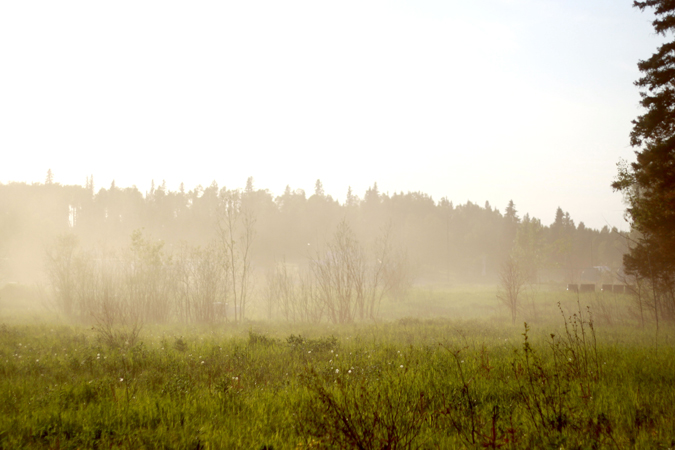
On July 7, 2017 the Province of BC announced a provincial state of emergency regarding the current wildfire situation. This is an unprecedented situation for our province, and one that is affecting many First Nations communities in the Interior Region.
During this stressful time, we at the First Nations Health Authority are committed to sharing information and support with communities. Evacuations are underway in many areas, and with the hot, dry weather expected to continue, more families and communities may need to leave their homes for safety.
The information provided below will help you to stay up to date with all the information you need.
1. Evacuation Orders https://www.emergencyinfobc.gov.bc.ca/
2. Driving conditions and Road Closures http://www.drivebc.ca
3. Health and Social supports
• Red Cross Wildfire Evacuations - If you have been evacuated, please call the contact centre at 1-800-863-6582 to have an agent help you register. You can also register online here.
• Red Cross Wildfire
Evacuations - If you have been evacuated, please call the contact centre at
1-800-863-6582 to have an agent help you register. You can also register
online here.
• Hospital Evacuations – information call line: 1-877-442-2001 (toll free). Interior Health (IH) has established a call line for families whose loved ones have been relocated from health facilities due to wildfire activity in the Cariboo and Thompson-Nicola regions. Interior Health has not been able to contact all families. Family members can call the IH Patient Care Quality Office (PCQO) for information about relocations.
• Emergency Social Services information: http://www2.gov.bc.ca/gov/content/safety/emergency-preparedness-response-recovery/volunteers/emergency-social-services/services
• Health and safety information from Interior Health: https://www.interiorhealth.ca/YourEnvironment/EmergencyPreparedness/Pages/MajorEvents.aspx
• Northern Health:
https://www.northernhealth.ca/YourHealth/HealthAlerts/EmergencyInfo-ForestFires.aspx
• FNHA Environmental Health Officer (EHO):
• During regular business hours contact Casey Neathway at 778-875-3486 or at casey.neathway@fnha.ca)
• After hours contact line: 1-844-666-0711 or ephs.afterhours@fnha.ca)
4. For the Air Quality Index for your area, visit:
www.bcairquality.ca/readings/
Smoke and wildfires can be a serious health hazard for communities across the province. The FNHA would like to provide some health information tips for those who may find themselves in close proximity to wildfires.
Wildfire Smoke Health Information
If you are in an emergency dial 9-1-1 or a local emergency contact number immediately.
For non-emergency health information and services visit www.HealthLinkBC.ca or call 8-1-1 toll-free, 24-hours a day, 7 days a week.
You can also contact your community health nurse or environmental health officer. Find your local EHO here.
Smoke conditions and local air pollution levels can change due to the unpredictable nature of wildfires. Health effects from smoke, such as irritated eyes, nose and throat irritation, and/or coughing or difficulty breathing, is common in healthy people. These effects may be more serious to people who are considered sensitive populations.
Sensitive Populations
Some people are considered to be more sensitive to smoke. These include people with existing heart or lung conditions, infants and young children, the Elderly, pregnant women, or those requiring special care and supportive care.
This population should:
• Take actions to reduce exposure at an early stage – refer to the recommendations below.
• Watch for any change in symptoms that may be due to smoke exposure such as: persistent cough or wheezing, shortness of breath or other symptoms that indicate worsening of the underlying chronic health condition.
• Residents with asthma or other chronic illness should activate their asthma or personal care plan.
• If you have severe symptoms from smoke exposure, go to the health centre or nursing station.
If you are otherwise healthy but experiencing symptoms due to heavy smoke follow the steps below to reduce your exposure.
Reducing Exposure to Smoke
There are some actions you can take to reduce health effects of smoke in the air:
• Use common sense regarding outdoor physical activity – if your breathing becomes difficult or uncomfortable, stop or reduce the activity, or go inside. If outdoor trips in smoky areas are necessary, breathe through a damp cloth to help filter out particles.
• Staying indoors may help you stay cool and provide some relief from the smoke. Close windows and blinds and move to the coolest room in the house. Also, keep the body cool and hydrated: take cool showers or baths and drink plenty of fluids - avoid drinks with sugar or alcohol.
• Keep particle levels inside lower by not using anything that burns, such as wood stoves or even candles. Don’t smoke – this puts even more stress on your lungs.
• Use a portable HEPA (high efficiency particulate air) filtration unit or electrostatic precipitator if available. Buildings with central air systems may also provide relief.
• When driving your car, keep your windows and vents closed. Air conditioning should only be operated in the “recirculate” setting.
Emotional support
If you are in need of debriefing and emotional support in this time please reach out to Mental Wellness Advisor, Shawna Nevdoff for coordination at Shawna.Nevdoff@fnha.ca or call 778-489-2230.

